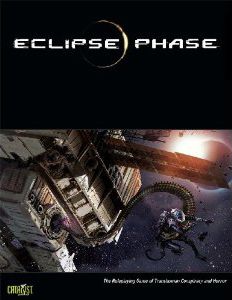Sep 19, 2010
New Plant Paradigms (Part X: Power Plants, Greening the Desert, Phyto-Terraforming, and Recommendations)
Posted by Daniel Berleant in categories: biological, biotech/medical, futurism, habitats
(End of series. For previous topics please see parts I-IX)
Power plants. Trees could do a lot, as we have seen — and they’re solar powered, too. Once trees can suck metals from the soil and grow useful, shaped objects like copper wire, a few more levels of genetic engineering could enable the tree to use this copper wire to deliver electricity. Since a tree is already, now, a solar energy converter, we can build on that by having the tree grow tissues that convert energy into electricity. Electric eels can already do that, producing enough of a jolt to be lethal to humans. Even ordinary fish produce small amounts of electricity to create electric fields in the water around them. Any object nearby disrupts the field, enabling the fish to tell that something is near, even in total darkness. We may never be able to plug something into a swimming fish but we can already make batteries out of potatoes. So why not trees that grow into electricity providers all by themselves? It would be great to be able to plug your electrical devices into a tree (or at least a socket in your house that is connected to the tree). Then you would no longer need to connect to the grid, purchase solar panels, or install a windmill. You would, however, need to keep your trees healthy and vigorous! Tree care specialists would become a highly employable occupation.
Greening the desert. The Sahara and various other less notorious but still very dry deserts around the world have plenty of sand and rocks. But they don’t have much greenery. The main problem is lack of water. Vast swaths of the Sahara, for example, are plant free. It’s just too dry. However this problem is solvable! Cacti and other desert plants could potentially extract water from the air. Plants already extract carbon dioxide molecules from the air. Even very dry air contains considerable water vapor, so why not extract water molecules too. Indeed, plants already transport water molecules in the ground into their roots, so is it really such a big step to do the same from the air? Tillandsia (air plant) species can already pull in water with their leaves, but it has to be rain or other liquid water. Creating plants that can extract gaseous water vapor from the air in a harsh desert environment would require sophisticated genetic engineering, or a leap for mother nature, but it is still only the first step. Plants get nutrients out of the soil by absorbing fluid that has dissolved them, so dry soil would be a problem even for a plant that contained plenty of water pulled from the air. Another level of genetic engineering or natural evolution would be required to enable them to secrete fluid out of their roots to moisten chunks of soil to dissolve its minerals, and reabsorb the now nutritious, mineral-laden liquid back into their roots.
Once this difficult task is accomplished, whether by natural evolution in the distant future or genetic engineering sooner, things will be different in the desert. Canopies of vegetation that hide the ground will be possible. Thus shaded and sheltered, the ground will be able to support a much richer ecosystem of creatures and maybe even humans than is currently the case in deserts. One of Earth’s harshest environments would be tamed.
 But it also available free on scribd
But it also available free on scribd 









